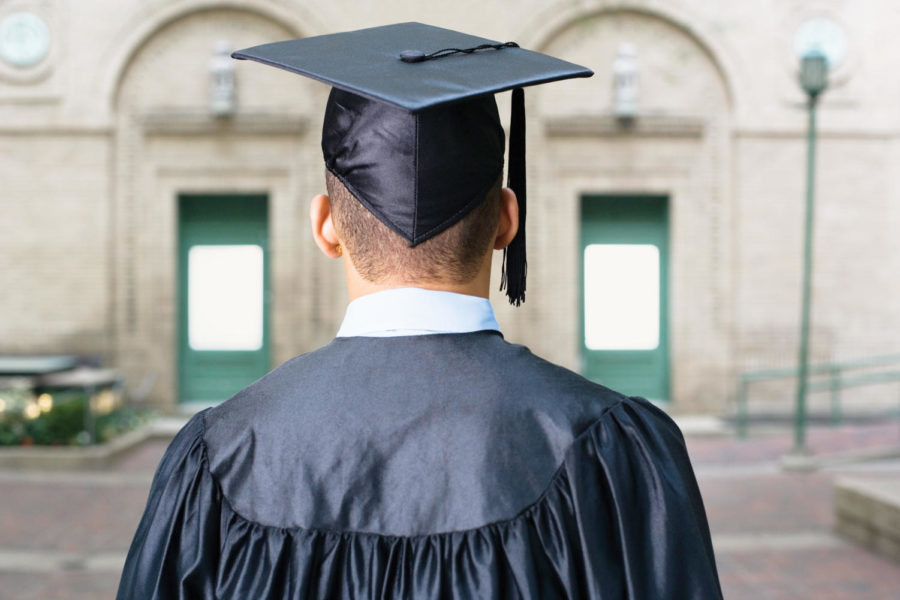Snell: How to be an American: Fix education first
March 27, 2012
Revolutionary thinker Thomas Jefferson said, “I know no safe depository of the ultimate powers of the society, but the people themselves: and if we think them not enlightened enough to exercise their control with a wholesome discretion, the remedy is not to take it from them, but to inform their discretion by education.”
Jefferson went on to talk about how education is the “true corrective of abuses.” Got a problem? Jefferson’s solution is to get smart. Therefore, the first roadblock to reclaiming our Americanism is our educational system.
Let’s face it. We’re just not as smart as we used to be. That’s not hyperbole or nostalgia, it’s a fact. Education used to be more comprehensive, and it certainly was a lot more challenging. One only needs to look at curricula from 100 years ago to discover that we’re undereducated compared to previous generations. Questions from seventh grade exams from 1900 will stump most college graduates today.
Iowa State used to have entrance exams containing questions that were, at the time, considered common knowledge and were intended to ensure that all students entered the university with a minimum knowledge base. Here are two questions from Iowa State’s 1903 exam; see if you can answer them:
• The fore-wheel of a carriage makes 5 revolutions more then the hind-wheel in going 50 yards, and if the circumference of the fore-wheel were increase by one-tenth, and the circumference of the hind-wheel by one-fifth, the former would make 7 revolutions more then the latter in going 198 feet. What is the circumference of each wheel?
• In the following sentence tell what part of speech each word is: “The deacon did not stop to speak to her, but after a moment’s thought placed the precious wallet under the pillows.”
I’m not advocating that we go back to entrance exams, but that we’re dumber than ever is definitely a problem we need to admit and address. If the ISU entrance exam in 1903 had questions like those above and college students could answer them back then and we cannot today, problems with America’s educational system begin in the primary schools.
Many things have changed between 1903 and now. There are volumes of research on the subject, and far too many angles to cover in a single column. However, quite a bit of the research suggests the existence of an insidious confluence of factors unintentionally impacting our education negatively.
Some of these potential negative factors include standardized testing (the SAT and ACT, established in 1926 and 1959), grade inflation (the “dumbing down” of course material and tests, and/or increasingly lenient grading), loss of local sovereignty over our children’s education (what we call the Department of Education today was created in 1953) and increased student loans.
College graduates today cannot pass the 1903 entrance exam, yet the grade of A is the most common grade given and our standardized test scores mysteriously stay the same or magically rise. High school grads who can’t pass a GED exam are coming to college in record numbers because money is easy to get. I won’t do your thinking for you, but here’s a hint: Follow the money. Ask: Do teachers and schools have any incentive to give higher grades to students? Does somebody benefit if more kids go to college, even if they’re not educated enough to be there?
That college enrollment continues to increase in record numbers is an indication of the failure of primary education too. A high school diploma means less by the year, and one must get a college degree to compensate — a college degree that is requisite to get even menial jobs these days.
College used to be a place a person didn’t have to go to lead a prosperous and productive life. Universities used to be something of a finishing school, a place people went to pursue a higher calling, above and beyond the everyday careers that form the basis of civilization. People went to college to become doctors, lawyers or to serve in government; they went to college to learn the military arts or science, which used to be connected to civic virtue as well, rather than economic gain.
I’m not saying people shouldn’t be able to go to college, only that you shouldn’t have to. You ought to get a better education earlier and your high school diploma ought to be worth more. As our elementary, junior and high schools fail to educate us, the burden shifts even further down the line to universities.
And when students enter universities more ignorant than ever, the quality of a university education is diminished, further hurting the system and, frankly, diminishing the value of the education we pay for here. Now you have to go to grad school to get what you used to get during your undergrad. It won’t be long before you’ll need a Ph.D. to get an entry-level job, and masters and doctorate programs will be dumbed down too, leaving nowhere left to go to finish one’s education.
It’s no coincidence that the state of citizenship is in decline on a vector parallel to the decline of American education. We hear about citizen apathy all the time, and it makes perfect sense: How can we care about something we’re ignorant of? Being an American is a duty, not a right, and that duty requires education.
Want to be an American? Get smart and educate our kids better.







